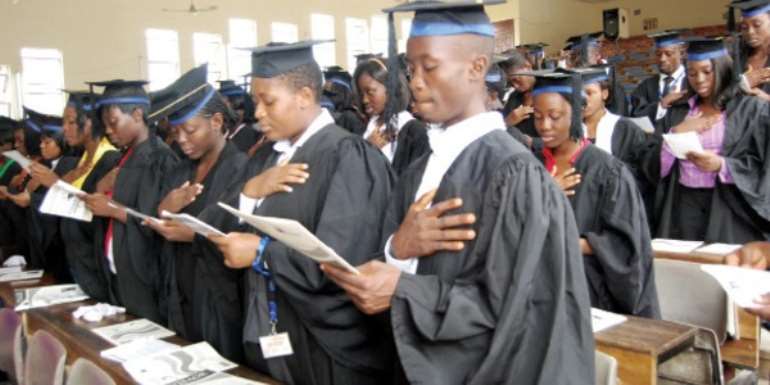SUSTAINABLE EDUCATION FOR A HEALTHIER FUTURE

Education gives knowledge which as Bacon rightly puts, is a
“source of power to man”. However, it is crucial we note
that this power can function either as one employed to
build a better future or as one that destroys.
Our masters, the likes of Galileo, after much philosophizing
and experimentation, discovered truths and initiated
beneficial principles now observed in our educational
system. Their great philosophies are perfect for numerous
situations, but our system does not show scholars the path
to think and understand the proper situations to apply
them. This is chiefly because the concentration of teachings
nowadays is not to make people think, which ought to be the
primary goal, but chiefly to uphold existing laws, reasoning
in the confinement of principles, and empowering
indirectly an unsustainable world.
Acquiring Knowledge of established principles is good. But
our educational system is leaving out an essential goal of
growing our thinking faculty, by not grounding scholars with
the understanding that the established principles are
simply discoveries employed to help and should not be
taken as final. Such limits our sense of discovery needed to
address the diverse problems growing in our world.
Time or situation can transform valid principles to invalid;
the superseded scientific laws or theories we had and will
still have are examples. “To be yourself in a world that is
constantly trying to make you something else is the
greatest accomplishment” (Ralph Waldo). A good quote it
is; however, students are not grounded to understand its
context and scope: Sadly, one can now see a sadist
employing similar quote to justify actions, causing
mayhem.
At a tender age, it was like a law according to my parents
and remarks from people that rain starts and ends in
certain months. I remember asking: “What if it rains in
January?” their answer was: “It cannot”. The reply came
with some air of finality because the principle had been
valid historically and probably because they had never
experienced otherwise. The principle was true. To them it
was irrevocable. But time has invalidated that principle
through climate change. Now the months they had known to
bring heavy downpours sometimes turn to be the driest.
Life gets more complex every day, luckily we have principles
intended to help, not to mold or limit our future. Sadly, our
recognized principles cannot fit in every situation, and
sticking on them will only bring about chaos. For a
sustainable world, we need a kind of education where
principles are acknowledged as a stimulus and not a
decree. We need Education where people have enough
grounds to express themselves beyond established
principles, laws or philosophies; one that develops our
reasoning and thinking faculty without constraints.
Pitiably, the knowledge we now gain from education does
not train one in the part of wisdom which grows when one
begins to think. It only exposes some people’s wise thoughts
or principles. Our system of education now yields educated
fanatics: people that have acquired better knowledge on
how to present and manage their fanaticism, planting
chaos by training advanced erroneous people.
Due to life’s growing complexities, education that develops
our discerning ability to avoid further knowledge
misappropriation is needed. Adoption of fine principles
helps, but we should avoid settling in a period where
scholars are chiefly concerned with following of principles,
so we can elude a future of people that reason more with
citations than their heads, like robots.
For a peaceful and sustainable future, we should stop the
degrading practice of following principles thoughtlessly in
our educational system, and welcome fresh educational
scheme that stimulates our thinking faculty. That will
enable all to understand the fact that time or situation
can change anything. So, one would not be quick to
conclude because of knowledge from recognized scholars or
universal principles.
I believe in the future of education where people do not
just copy principles or laws, but where people also
philosophize on situations to know where the principles are
usable. This will free our world from the problematic chains
of principles. Some of our masters foresaw this ugly future
of ‘ scholaroids ’; Socrates addressed it: “I cannot teach
anybody anything, I can only make them think.”
Postmarked May 2016 for Goi Peace Foundation Essay
Contest (2016)
THEME: "Education to Build a Better Future for All"
Word limit: 700
